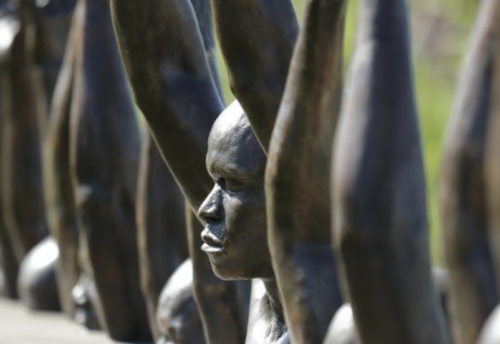
Endorsed by the Leadership Team of First Baptist Church of Smyrna
May 2, 2020
The Non-Discrimination Ordinance (NDO) as drafted is clearly unconstitutional. The NDO refers to “violations of city ordinances” without limitation or explanation. Subjecting all existing ordinances to required “enhanced penalties” as a result of this NDO will result in unconstitutional viewpoint discrimination as an impingement on the First Amendment.
For example, Smyrna City Code § 82-14(1) bans all signage 15 feet from the edge of all roads. This is a viewpoint neutral law, as it does not ban the signs based on the content of the sign. This ordinance is not consistently enforced, and there are many such signs within the city. Yet, under the NDO, if a sign creator writes a message of, for example, “Repent Gender Fluid People and Be Saved!,” and posts the sign in his yard near the road, the sign creator would be subject to enhanced penalties, as this would arguably constitute prohibited discrimination under the NDO. By contrast, a different sign creator with the message of “Trump Supporters Are Deplorable!” would not be subject to enhanced penalties. Both messages would be found offensive by different groups of people, but the NDO singles out only the first message for enhanced penalties as political affiliation is not a protected group under the NDO.
Under the First Amendment, the government cannot favor one viewpoint over another. For example, in Matal v. Tam (2017), the Supreme Court struck down a requirement that trademarks not “disparage… or bring into contemp[t] or disrepute … persons, living or dead” as being impermissible viewpoint discrimination. In this case, the City of Smyrna would expressly disfavor and even punish words or actions that are in support of the traditional Biblical understanding of gender and marriage.
Moreover, the proposed NDO contains no exemptions for religious institutions or religious beliefs. Consequently, the proposed NDO could result in enhanced penalties for ministers based on the content of their sermons if their church somehow were in violation of any ordinance, including obscure building code requirements. Interestingly, the proposed NDO contains a definition of “religious organization” but does not refer to the definition within its text, which may suggest that the drafters considered an exemption yet decided against it.
Even the Supreme Court’s 2015 decision in Obergefell v. Hodges that legalized same-sex marriage recognized the importance of religious freedom in this regard: “Finally, it must be emphasized that religions, and those who adhere to religious doctrines, may continue to advocate with utmost, sincere conviction that, by divine precepts, same-sex marriage should not be condoned. The First Amendment ensures that religious organizations and persons are given proper protection as they seek to teach the principles that are so fulfilling and so central to their lives and faiths, and to their own deep aspirations to continue the family structure they have long revered.”
It must be recognized that those on the opposing side have long regarded anything short of celebratory affirmation to be discrimination or hate speech. Through legal action based on ordinances such as Smyrna’s proposed NDO, they seek to force Christian cake artists to create gender transition cakes and Christian photographers to document same-sex weddings. They have lost at the Supreme Court so far, yet they continue to seek enactment of unconstitutional laws and to provoke endless legal battles. To this end, the drafter of Smyrna’s proposed NDO even included a severability clause, purporting to save the remainder of the ordinance if portions are held unconstitutional, stating that “unconstitutionality shall not affect any of the remaining phrases, clauses, sentences, paragraphs and sections of this ordinance.” This shows that the drafters are gearing up for a constitutionality challenge. The ordinance represents that the City of Smyrna is “inclusive of all,” but in fact, this NDO is the first step toward creating a hostile environment for Biblical Christianity.



